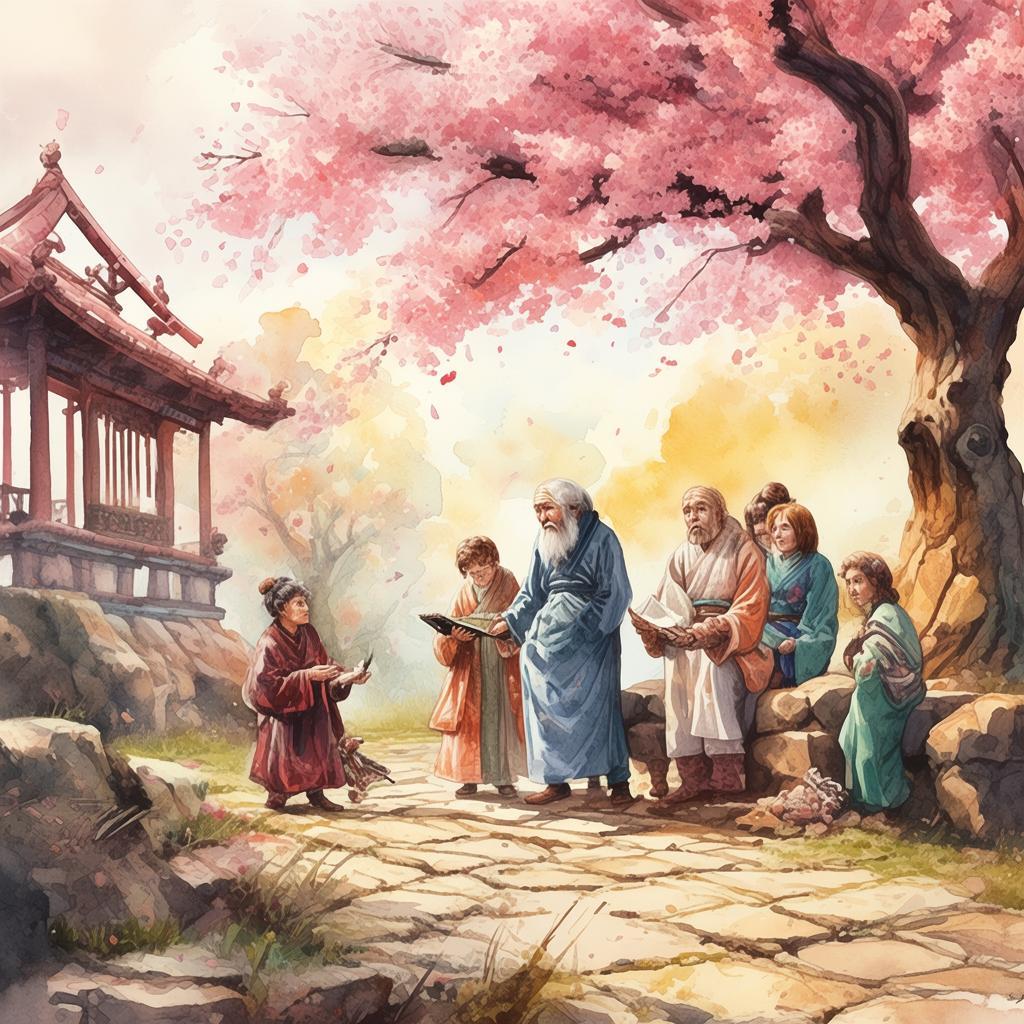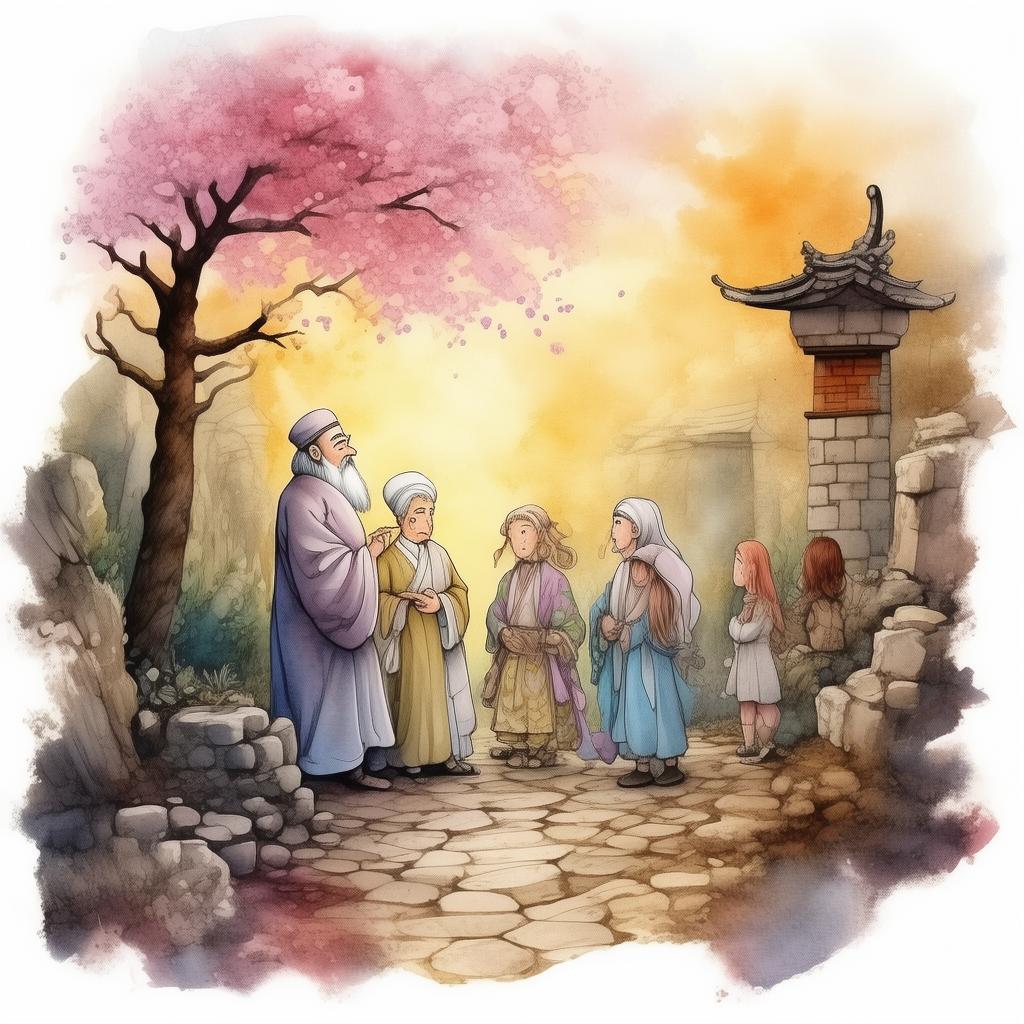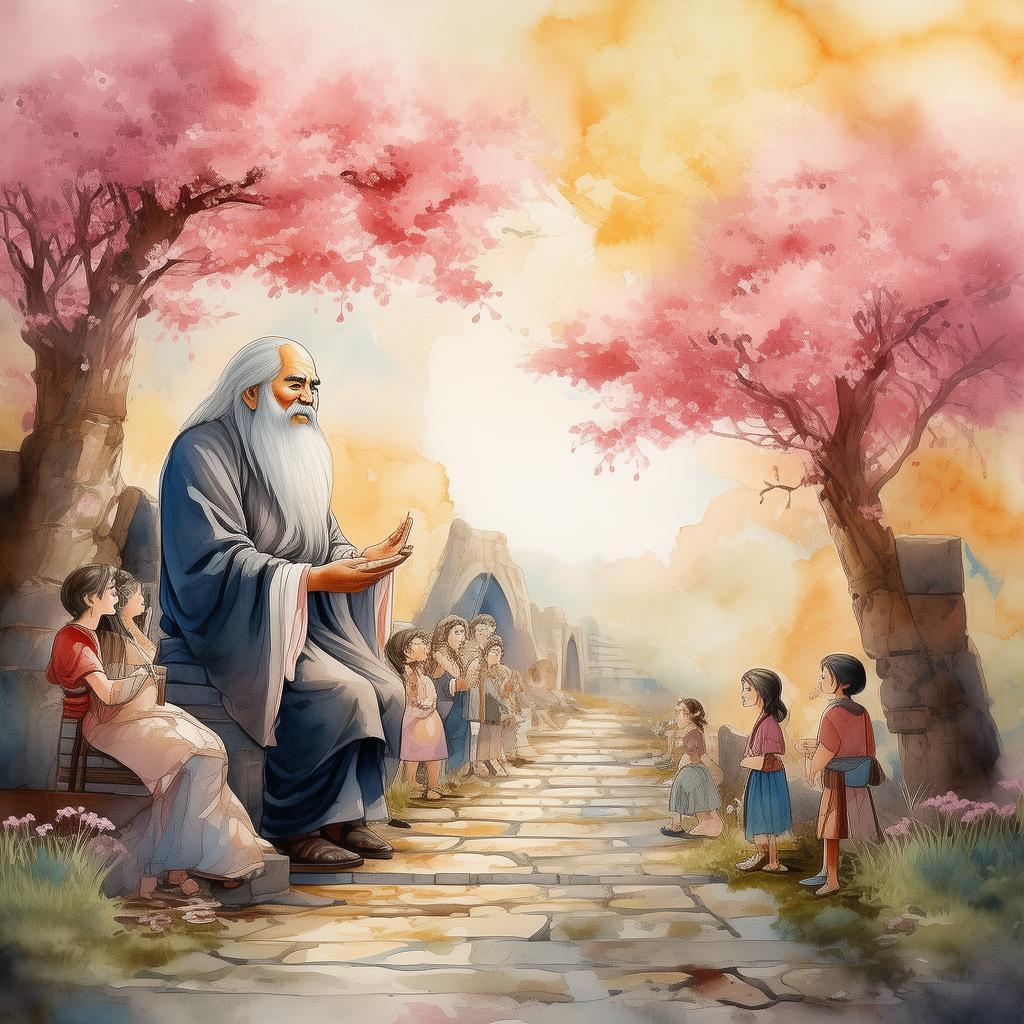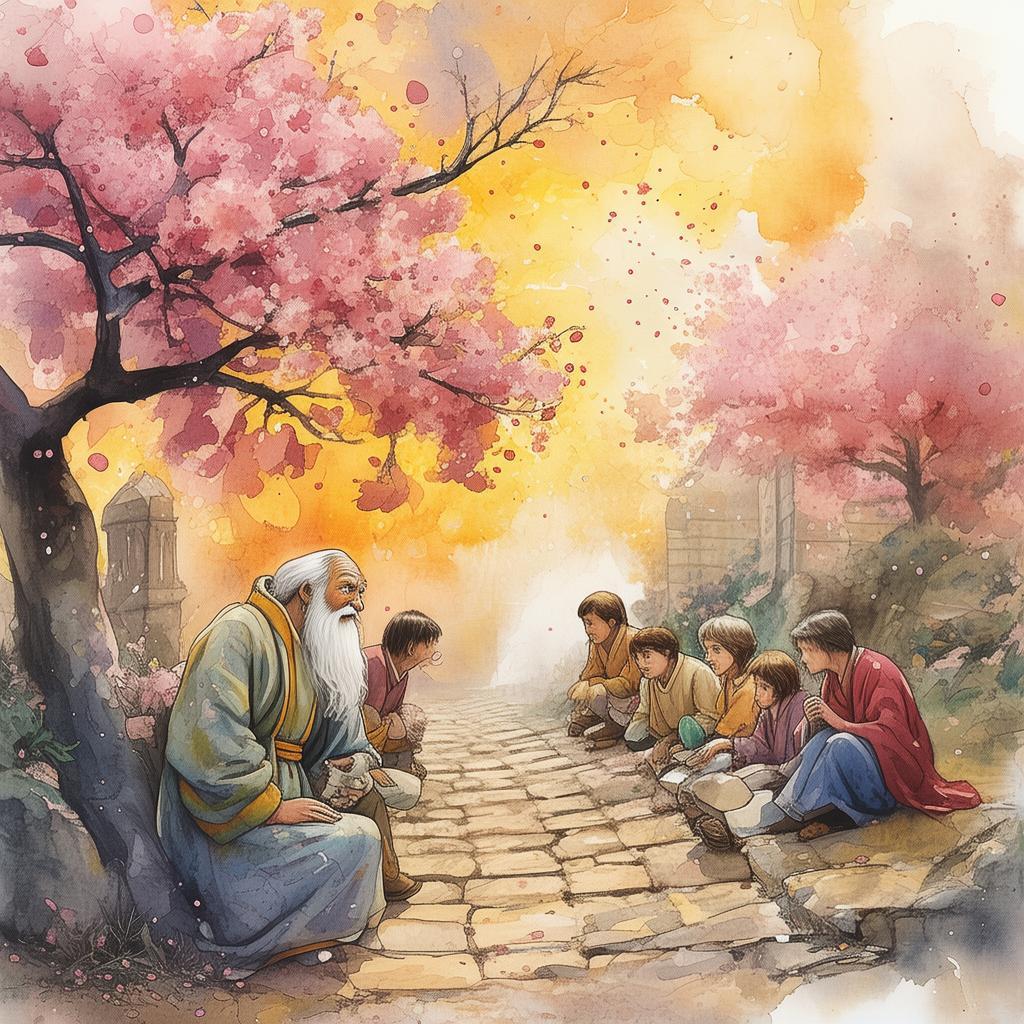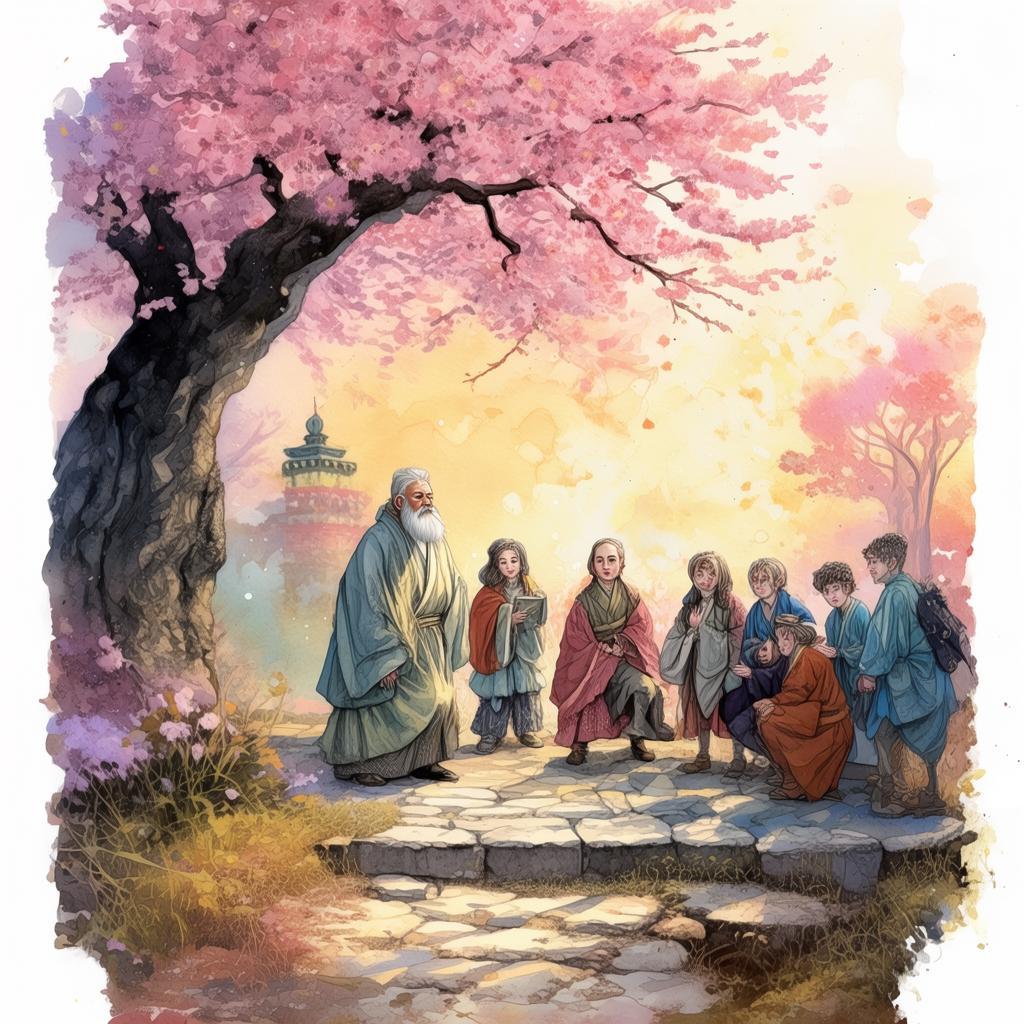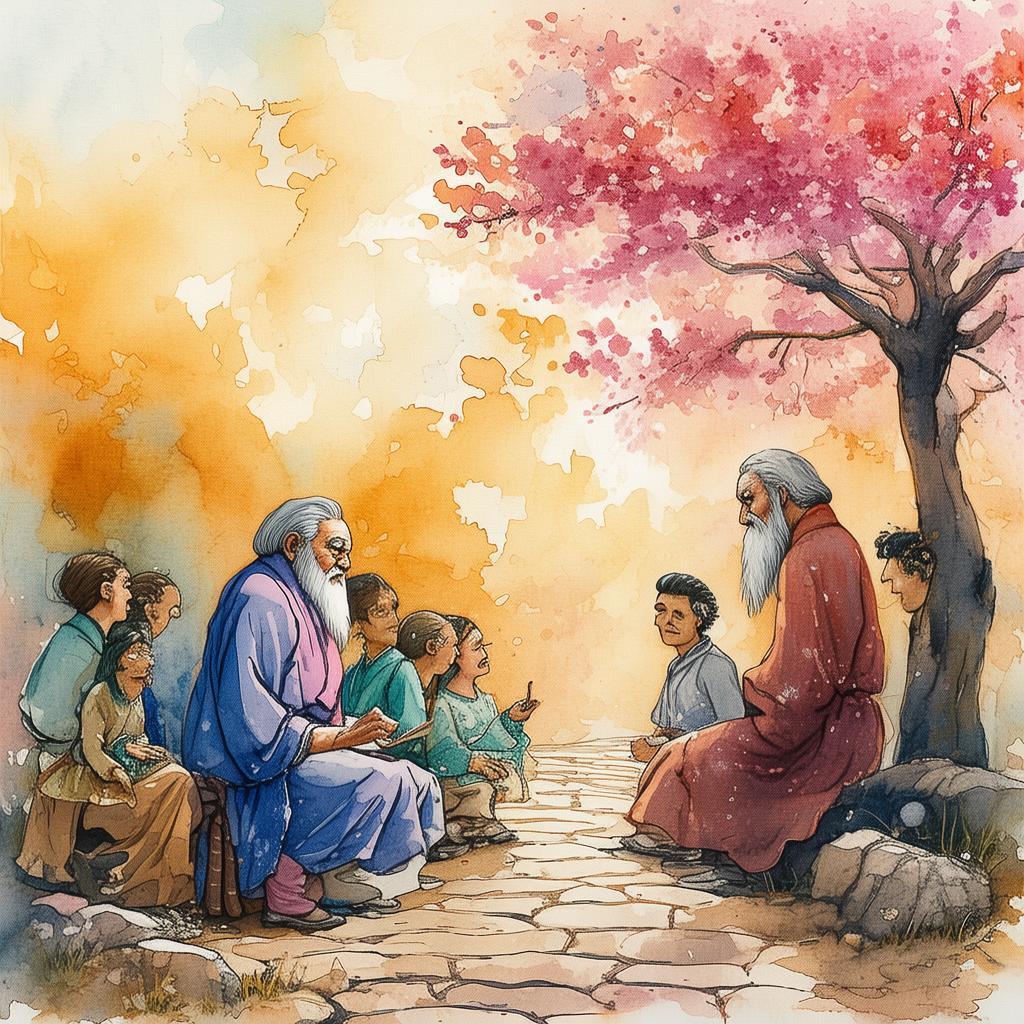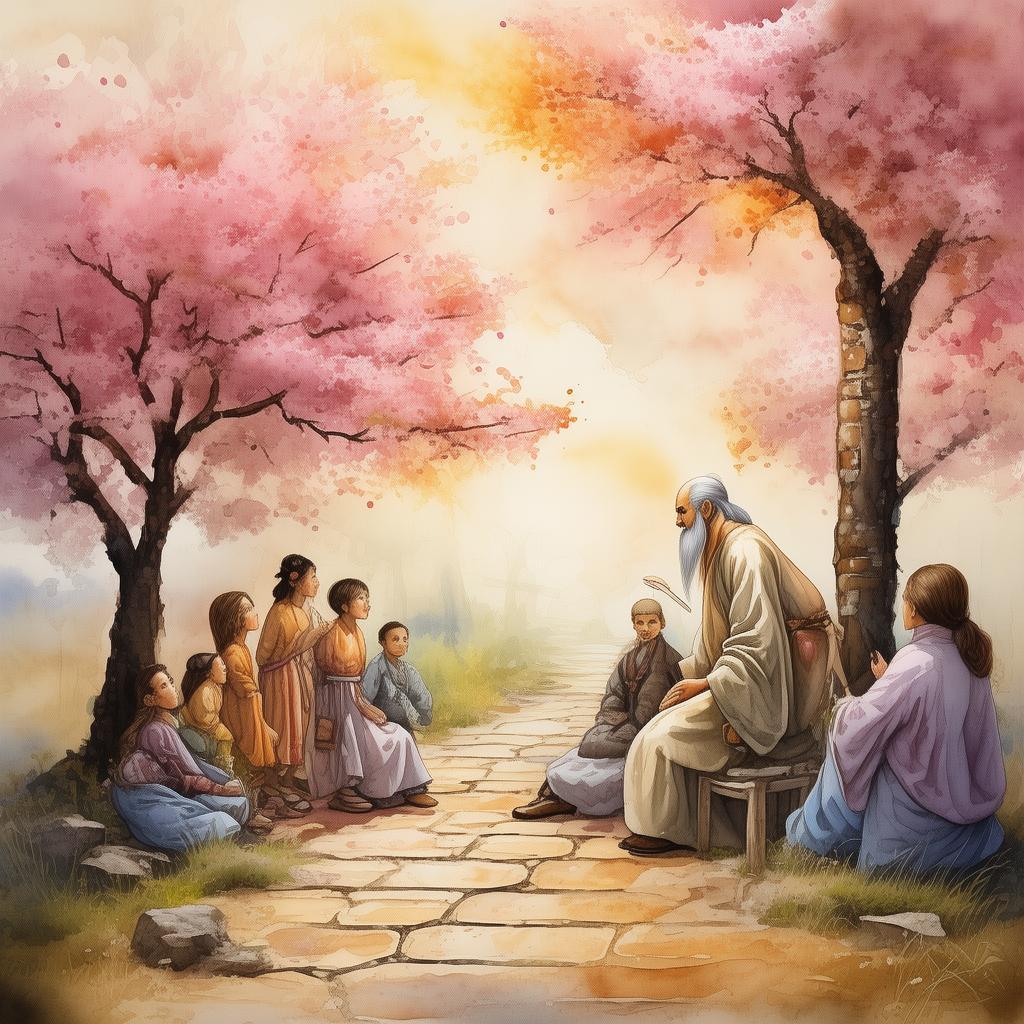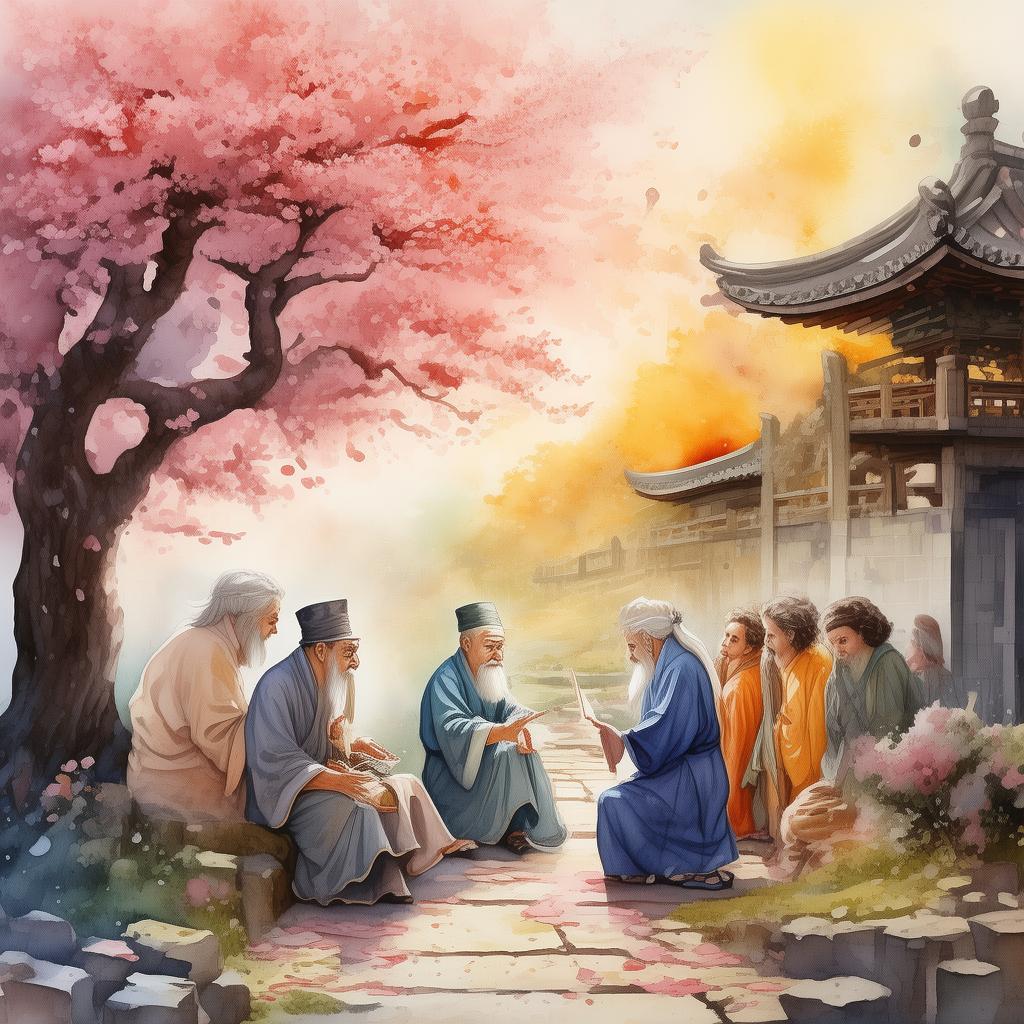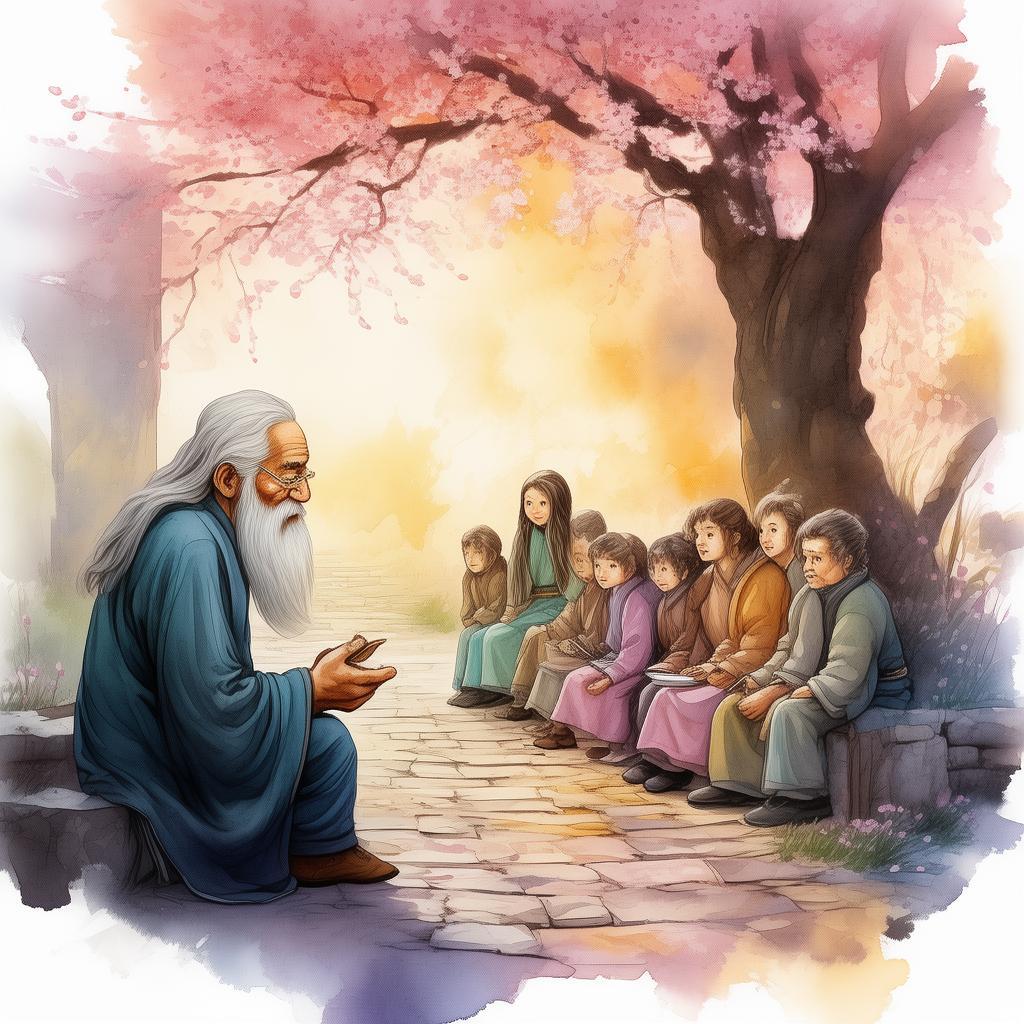The Melody of the Written Word
In the ancient city of Jing, there was a scribe named Ling who had a passion for the written word. His hands danced across the parchment, weaving tales and histories that echoed through the ages. Yet, as the years passed, Ling felt a growing emptiness within his soul. The written word, while powerful, seemed to lack the soulful resonance of music.
One day, while translating an ancient scroll, Ling stumbled upon a cryptic passage that spoke of a forgotten art—a serenade of the written word. It spoke of a scribe who could infuse his words with melodies, making them resonate with emotion and life. Intrigued and determined to uncover this long-lost art, Ling embarked on a journey to find the source of this musical magic.

Ling traveled far and wide, seeking out the wise and the learned. He visited libraries and monasteries, seeking the knowledge that could unlock the secrets of the written word. Along the way, he encountered various challenges and obstacles, but his determination never wavered.
One evening, as the moonlight bathed the ancient city in a silver glow, Ling found himself at the threshold of an old, abandoned temple. The temple was said to be the resting place of the last scribe who had mastered the art of the written word. With a deep breath, Ling stepped inside, his heart pounding with anticipation.
The temple was filled with dust and cobwebs, but it was also imbued with an eerie, almost musical energy. Ling's eyes scanned the walls, searching for any clue that might lead him to the source of the serenade. Suddenly, his gaze fell upon a faded portrait of an elderly man, his eyes twinkling with wisdom.
As Ling approached the portrait, he noticed a small, ornate box next to it. Curious, he opened it to find a collection of ancient scrolls, each inscribed with intricate musical symbols. These symbols, when combined with certain words, would create a melody that could be channeled through the written word.
With newfound hope, Ling began to study the scrolls, deciphering the ancient symbols and learning the secrets of the written word. He practiced tirelessly, his fingers dancing across the parchment, creating melodies that seemed to echo through the air.
One night, as Ling sat by the window, lost in his thoughts, he heard a knock at the door. Opening it, he found a young girl standing in the doorway, her eyes brimming with tears. Her name was Mei, and she had come to seek help from Ling.
Mei's father, a renowned poet, had recently passed away, leaving behind a collection of unfinished poems. The poems were filled with melodies, but Mei had no idea how to bring them to life. Seeing the despair in her eyes, Ling knew he had to help.
With the knowledge he had gained, Ling began to work on the poems, infusing them with melodies that would resonate with the emotions they were meant to convey. As he finished each poem, Mei's eyes would light up with a newfound hope.
The community, hearing of Ling's work, began to gather around him. They were mesmerized by the melodies that seemed to come alive through the written word. The rift between the spoken and the written word began to heal, and the community found a new sense of unity and understanding.
As the days passed, Ling realized that the serenade of the written word was not just about creating music with words; it was about healing and bringing people together. The melodies he created were not just for the ears, but for the soul.
One evening, as the community gathered to celebrate the healing of their rift, Ling stood before them, his heart full of gratitude. With a deep breath, he began to read one of the poems he had written, his voice filled with emotion and his fingers dancing across the parchment.
The room fell silent, as the words and melodies seemed to weave a tapestry of emotion and connection. When he finished, the crowd erupted into applause, their hearts touched by the serenade of the written word.
Ling had found his purpose once more, and with it, he had found the true power of the written word. The serenade of the written word had not only brought the community together but had also given Ling a sense of fulfillment and purpose that he had long sought.
In the end, the ancient art of the serenade of the written word was not just a musical form but a bridge between the heart and the mind, a testament to the power of words to heal and unite. And so, the scribe's serenade continued to resonate through the ages, a testament to the enduring beauty of the written word.
✨ Original Statement ✨
All articles published on this website (including but not limited to text, images, videos, and other content) are original or authorized for reposting and are protected by relevant laws. Without the explicit written permission of this website, no individual or organization may copy, modify, repost, or use the content for commercial purposes.
If you need to quote or cooperate, please contact this site for authorization. We reserve the right to pursue legal responsibility for any unauthorized use.
Hereby declared.
